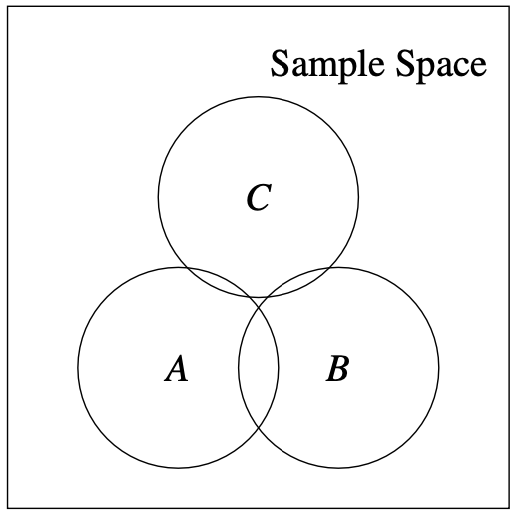2.4 Independence
Independent Events
Suppose \(A\) and \(B\) are two events.
Two events are independent if the occurrence of event \(B\) provides no information about the occurrence of event \(A\):
\[ P(A|B) = P(A) \]
Another definition of independence:
\[ P(A \cap B) = P(A) P(B) \]
For multiple events:
\[ P(A_{1} \cap A_{2} \cap ... A_{n}) = P(A_{1}) P(A_{2}) ... P(A_{n}) \]
Conditioning and Independence
Suppose \(A\), \(B\), and \(C\) are events.
If \(A\) and \(B\) are independent, conditioning on \(C\) may remove that independence.
When we condition on \(C\), events \(A\) and \(B\) may no longer be independent.

The king comes from a family of two children. What is the probability that his sibling is female \(F\) and not male \(M\)?
Let all outcomes be equally likely.
\[ Sample \ Space = \{(FF), (FM), (MF), (MM)\} = \{(\not F \not F), (FM), (MF), (MM)\} \]
\[ P(F|M) = \frac{P(F \cap M)}{M} = \frac{2}{3} \approx 0.6\bar{6} \]